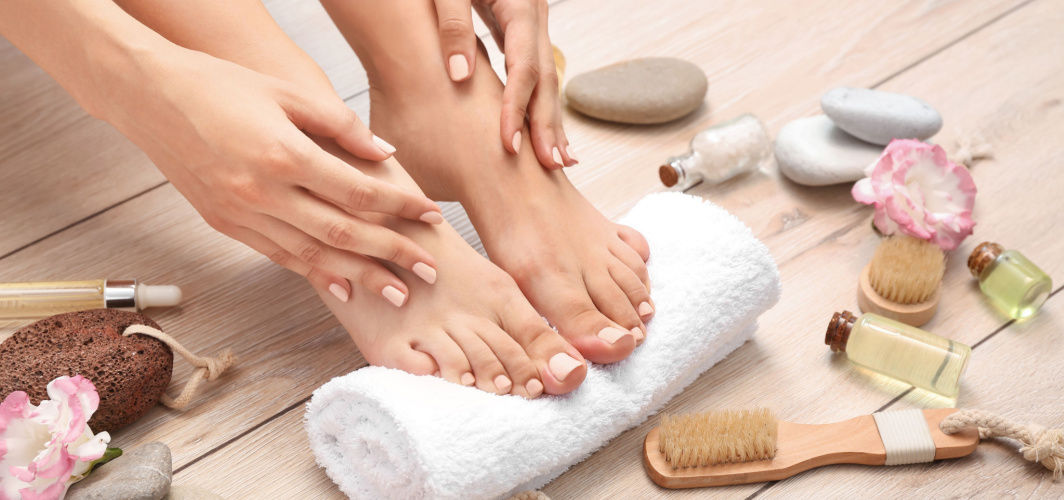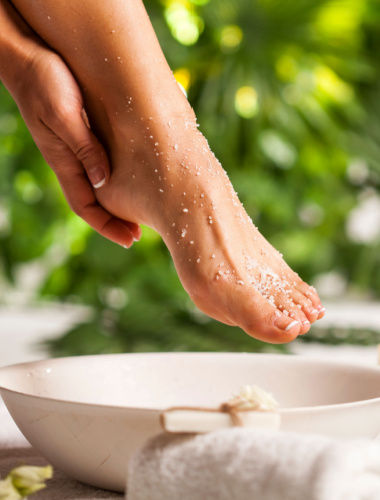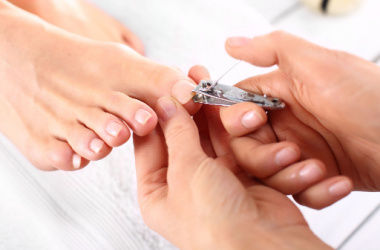General Health
Feet Hygiene Is No Luxury But A Necessity. Know Easy Tips To Maintain It
3 min read
By Apollo 24|7, Published on - 29 August 2022, Updated on - 18 October 2022
Share this article
0
73 likes

If you think your face needs extra care, so do your feet! You use your feet every day, not to mention that they carry your entire body weight. But how often do you make efforts to ensure their well-being? Statistics reveal one in three people experience foot discomfort, stiffness, or pain in their feet regardless of age or present health situation. Practising basic foot cleaning practices will reduce discomfort and produce favourable results.
Consequences of Bad Feet Hygiene
Maintaining feet hygiene is a necessity as negligence can result in various bacterial and fungal infections. Some of these infections include:
1. Athlete’s foot
People who do not keep their feet dry and clean or walk barefoot in public spaces like gyms, shared showers and changing rooms are usually affected by athlete’s foot. If you don't thoroughly dry your feet, the warm, moist area between your toes serves as the ideal habitat for the fungus to grow and spread swiftly to a greater area. The infection causes the skin between your toes to get sore, itchy, red, flaky and covered in tiny blisters.
2. Smelly feet
Although everyone's feet perspire (sweat), it is not the cause of smelly feet. When perspiration enters the skin pores, microorganisms present on the skin begin to break down the sweat, producing a "stinky" or even cheesy odour. Although we all perspire, some people perspire more naturally than others, therefore, they require thorough cleaning and drying of the feet.
3. Fungal Nail Infection
One of the most typical foot illnesses is a fungal nail, which is caused by a highly contagious fungus that flourishes in warm, dark and moist environments. Distal Subungual Onychomycosis and White Superficial Onychomycosis are the two main forms of this infection, which start as an overgrowth of fungi in, on or under the nail.
Ways to Maintain Feet Hygiene
Persistent feet problems can cause discomfort in your knees, hips, and lower back. Therefore, measures that may help maintain feet hygiene include:
1. Change your footwear
- Wearing uncomfortable shoes increases your risk of developing plantar fasciitis and Achilles tendonitis as well as hip, knee and back pain.
- Therefore, try on shoes in the store before buying them.
- Make sure your shoes don't enclose or move around while you walk.
- Ask for custom sizes if you have wide or narrow feet.
- Although flip-flops are a great summer trend, they should not be worn for walks that last longer than 15 minutes as they put your feet at risk for injuries and blisters, and expose them to potentially dangerous germs.
2. Scrub your feet
You can develop a fungal foot infection if you don't vigorously scrub your feet every day. So grab a soft sponge, some soap, and elbow grease to get the job done.

3. Keep them dry
It's crucial to keep your feet dry because moisture is a critical component in the majority of fungal foot infections. When you step out of the shower, make careful to completely dry your feet because fungus cannot survive without moisture. You should also wear breathable, sweat-wicking footwear and replace your socks every day to keep your feet clean.
4. Keep the nails trimmed
Make sure to trim your toenails straight across as rounding or shortening them increases the chance of developing painful ingrown toenails. Some people find it uncomfortable, but the healthiest toenails have a tiny bit of white at the ends, which is the best method to guarantee you have healthy toenails for years to come.

Your feet take you to places, therefore, it is essential to maintain foot hygiene. Besides, you should always keep a check on your feet for any cuts, pain, irritation or any odd things you feel. If you have more questions,
Consult an Apollo Dermatologist
Medically reviewed by Dr Sonia Bhatt.
General Health
Leave Comment
Recommended for you

General Health
What Would Happen If You Didn't Drink Water?
People keep sipping water to counteract the loss that happens from the skin, breathing, and urinating. Explore in detail the repercussions of not drinking water.

General Health
7 Symptoms Of Hypothyroidism You Must Not Ignore
Hypothyroidism is a medical condition that occurs when the thyroid gland is not producing enough thyroid hormone, leading to various symptoms such as fatigue, weight gain, and cold intolerance. This article outlines the common symptoms of hypothyroidism and when you should consult a healthcare professional.

General Health
Jaggery Vs Refined Sugar: Which Is The Healthier Sweetener?
This article compares jaggery and refined sugar as sweeteners, discussing their impact on health. It covers aspects such as nutrition, digestion, natural sweetness, antioxidants, immune support, respiratory health, and blood purification.
Subscribe
Sign up for our free Health Library Daily Newsletter
Get doctor-approved health tips, news, and more.
Visual Stories

Could There Be More to Your Snore?
Tap to continue exploring
Recommended for you

General Health
What Would Happen If You Didn't Drink Water?
People keep sipping water to counteract the loss that happens from the skin, breathing, and urinating. Explore in detail the repercussions of not drinking water.

General Health
7 Symptoms Of Hypothyroidism You Must Not Ignore
Hypothyroidism is a medical condition that occurs when the thyroid gland is not producing enough thyroid hormone, leading to various symptoms such as fatigue, weight gain, and cold intolerance. This article outlines the common symptoms of hypothyroidism and when you should consult a healthcare professional.

General Health
Jaggery Vs Refined Sugar: Which Is The Healthier Sweetener?
This article compares jaggery and refined sugar as sweeteners, discussing their impact on health. It covers aspects such as nutrition, digestion, natural sweetness, antioxidants, immune support, respiratory health, and blood purification.